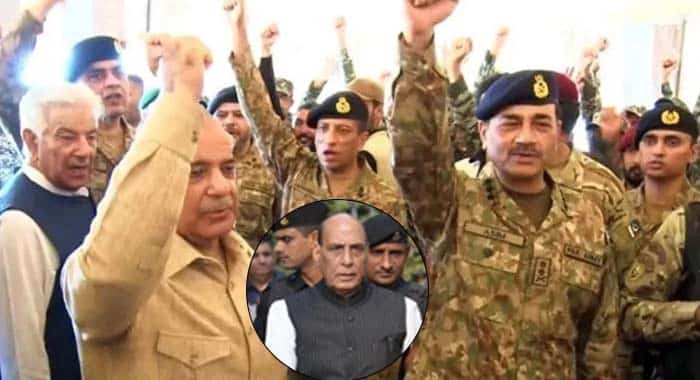As India grapples with the sting of its humiliating defeat in the so-called ‘Operation Sindoor’ at the hands of Pakistan, New Delhi seems to be struggling to swallow the bitter reality of its losses on the global stage. Despite the bruises inflicted by Pakistan’s military, the Modi government, still licking its wounds, has made an audacious attempt to reclaim some bravado with threats of further “military actions.”
The latest example of India’s aggressive rhetoric came from Defence Minister Rajnath Singh during an interaction with the Indian community in Morocco. Referring to the recent ‘Operation Sindoor,’ Singh hinted at the possibility of a “Part Two” of the operation, while spouting inflammatory remarks about Pakistan’s military actions. He added, “The terrorists came here and killed our citizens after asking their religion. Humne kisi ka dharm dekh kar nahi, unka karm dekh kar maara (but we did not ask about religion; we ”struck” based on their deeds).”
Such claims, however, are unlikely to fool the Indian public, who have witnessed their government’s rhetoric crumble under the weight of international shame. Instead of being reassured, Indians are left questioning why the government has failed to address the devastation caused to its own citizens, especially women, as a result of the government’s past actions.
On the global stage, India’s bluster seems to be doing more harm than good. Instead of recovering its lost dignity, the Modi administration is inviting ridicule, with global voices likely to echo the words of poet Ghalib: “Sharam tum ko magar nahi aati” (Shame, but you feel none).
The debacle traces back to 22nd April 2025, when India launched a full-scale assault on Pakistan in retaliation for an attack on its military personnel in Pahalgam. The offensive, which involved the use of state-of-the-art Rafale fighter jets, was met with an unrelenting counteroffensive by Pakistan’s air force. In the ensuing battle, Pakistan shot down six Indian aircraft, including a Rafale, and even destroyed an S-400 air defence system.
In the wake of Pakistan’s successful counterattack, India was forced to request a ceasefire from the United States. To mitigate the embarrassment, India’s Air Chief made a baseless claim of shooting down five Pakistani jets, though no evidence was provided.
Praveen Sahni, a former Indian military officer and defense analyst, stated that Pakistan’s air force had gained air superiority at the very start of the conflict, which ultimately decided the outcome of the skirmish. He even called for the resignation of India’s Air Chief in the aftermath.
Defence experts from Pakistan have reiterated that India’s reckless military adventures pose a grave threat to regional peace, but assured that Pakistan’s armed forces are more than capable of delivering a decisive response to any future aggression.
Despite repeated attempts by India to malign Pakistan through unfounded allegations; ranging from Pulwama to Pahalgam, India has failed to substantiate its claims on the global stage, only to face widespread embarrassment.
Experts believe that India’s ongoing anti-Pakistan rhetoric is primarily a desperate move by Modi’s government to divert public attention from mounting internal issues, such as inflation, farmers’ protests, and escalating human rights abuses in Kashmir. With the upcoming elections looming, India seems intent on playing the “Pakistan card” to salvage its faltering political fortunes.
However, if the Modi government makes the dangerous mistake of further escalating tensions, Pakistan’s military leadership, including Chief of Army Staff General Asim Munir, has already warned of a swift and deep retaliatory strike that could target critical Indian assets deep within its borders.





